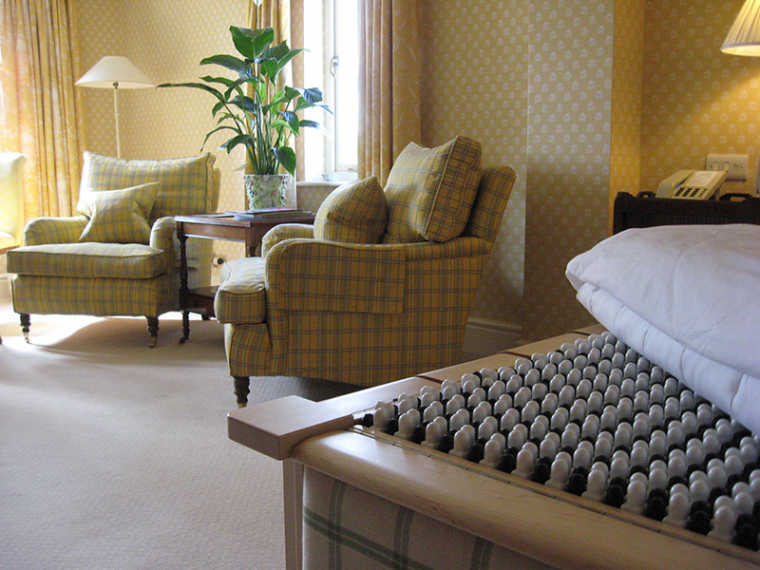In the second part of our series of articles exploring IP law, Jim Pearson of UK and European patent attorney firm Abel & Imray, on behalf of the Chartered Institute of Patent Attorneys (CIPA), explains how a business can benefit financially from its IP …

Jim Pearson
All businesses own tangible and intangible assets, but the successful businesses are often those that recognise and exploit fully both types of assets, which includes being on top of getting the most out of the business’ existing and prospective intellectual property (IP) rights.
There are various financial advantages to be gained from holding intellectual property rights, ranging from being able to charge a premium for your goods or services to reducing your corporation tax bill. In this article, I will explain five ways in which IP can attract, make or save you money.
Charging higher prices
One of the principal features of intellectual property rights is that an IP right grants the owner exclusivity over certain subject matter for a period of time in certain territories. For example, if a worktop manufacturer creates a number of distinctive images for use as surface decoration on worktops and registers those as design registrations in the UK, no other party can then make or sell in the UK identical or similar designs without infringing the design registrations.
Competition in relation to the suite of distinctive designs can be limited as competitors are deterred from producing something similar, creating greater demand and enabling the owner of the registered designs to charge a premium for the related products.
Licensing revenue
If the IP right covers subject matter that others wish to exploit and the right holder is willing to do so, the IP may be licensed to third parties in exchange for royalty payments. An owner of a patent covering innovative technology – whether that is a product, process or even a new software – may wish to keep an eye open for unwanted competition in relation to the subject matter covered by their patent and look out for licensing opportunities, or alternatively actively encourage licensing of their technology.

IP rights featured as a significant part of the pitch behind Ammique’s mattress-less sleep system
Patent box
The patent box tax regime has been operating for several years now, enabling owners of patents covering innovative technology that they have developed to pay corporation tax at lower rates.
The patent box provides for lower tax rates for profits taxed in the UK relating to revenue from sales of patented technology, whether such sales occur in the UK or abroad. Obtaining a patent solely for such purposes can be very straightforward because the focus can be on what is going to be sold by the patent holder, not on seeking a scope of protection so broad that it will cover all of the workarounds that the competition might try to employ.
Attracting investment and raising finance
When a company is seeking new investment or looking to sell off a part or whole of the business, the protection afforded by the intellectual property rights owned by the business can be seen as valuable assets.
If the company has created innovative technology or distinctive brands or exciting products, an investor will typically want to see that such innovative and creative work is properly captured and protected by strong IP rights. Some financial institutions will lend money using IP assets as security, effectively allowing IP owners to mortgage their IP.
Example of IP helping to raise finance
Ammique recently succeeded in crowd-funding the next stage of their business. The company’s research has shown that there is a gap in the market for a superior bed, their work resulting in a mattress-less and precision-engineered Ammique sleep system.
They were seeking £500,000, but ended up with over £800,000 in crowd-sourced funding – see www.crowdcube.com/ammique and www.crowdcube.com/companies/ammique-ltd for further details.
It will be seen that their IP rights featured as a significant part of their pitch, and investors will have been reassured that Ammique has secured valuable protection for their innovations, providing exclusivity over branding, as well as the technology behind their product.
Showing enhanced value in the business
It will be seen from the above that IP can attract, make or save a business money. It should therefore be no surprise that many businesses place their IP assets on the company’s balance sheet. While obtaining accurate valuations of IP can be a time-consuming and difficult exercise, many accountants are taking advantage on behalf of their clients of the ability to show the value captured by IP on the books.
An example within the furniture industry is Ikea. You might wonder how Ikea could achieve patent protection, when their designs are usually very simple. Actually, Ikea has at least 130 different ideas currently captured in granted or pending applications, and a suite of registered designs.
Ikea seeks to patent manufacturing processes and tools, rather than individual products. An example is the Wedge Dowel, otherwise known as patented click technology, for enabling customers to more easily assemble the pieces of their furniture flat-packs. Ikea thus ensures that whilst a competitor could devise a similar design, they cannot replicate the same success. No doubt the IP rights features as assets of the business in their accounts and company reports.
Conclusion
Obtaining and registering IP is not always a cheap process, but can pay dividends in the long-term. If an IP asset is not going to enhance the value of your company, you shouldn’t be maintaining it.
On the other hand, if you want IP in your business to be one of the valuable assets of the company, you should be looking to invest now to reap the rewards in the future. It is no surprise to learn that some of the most successful businesses in today’s economy are those that have historically invested in their IP, and continue to do so.
For further information on any of the issues raised, or for queries on any intellectual property matter, Jim would be happy to assist - [email protected] A local patent attorney can be found via CIPA’s website - cipa.org.uk/find-a-patent-attorney/






